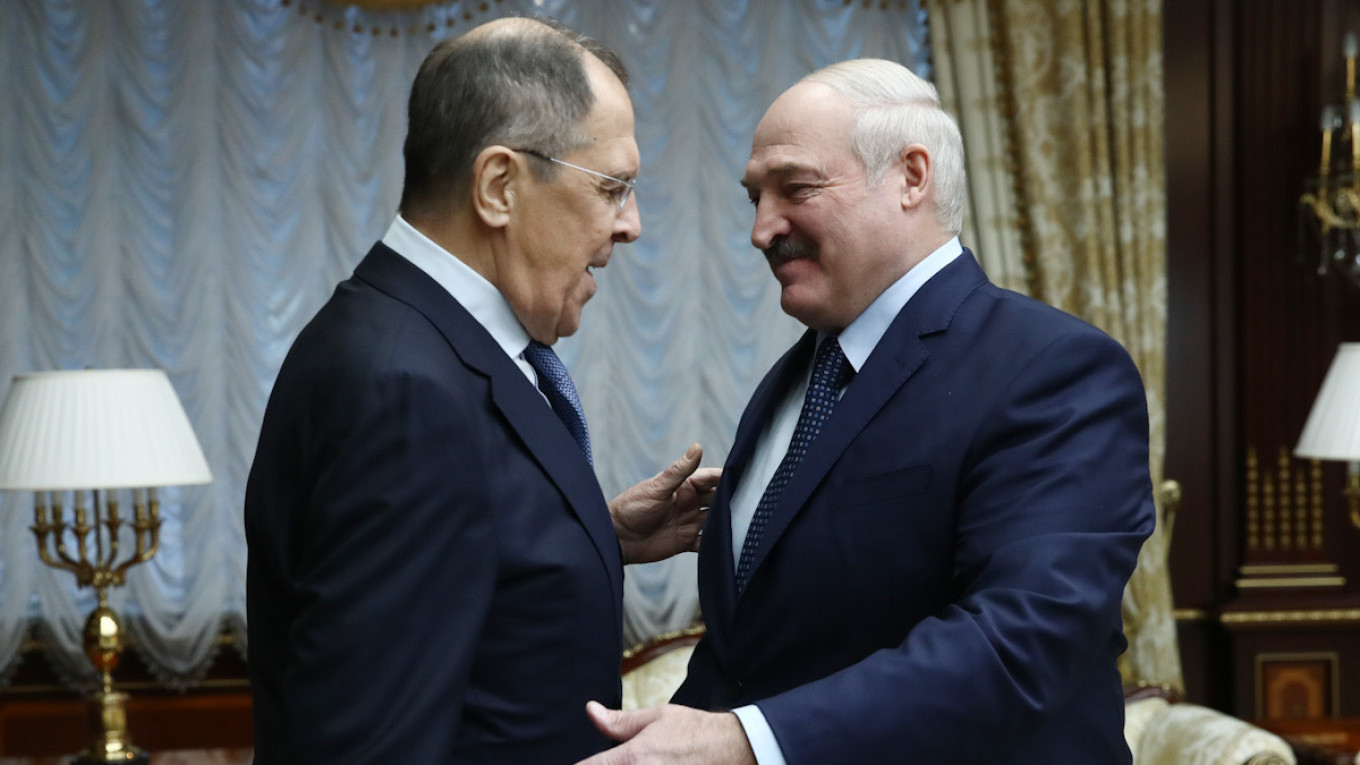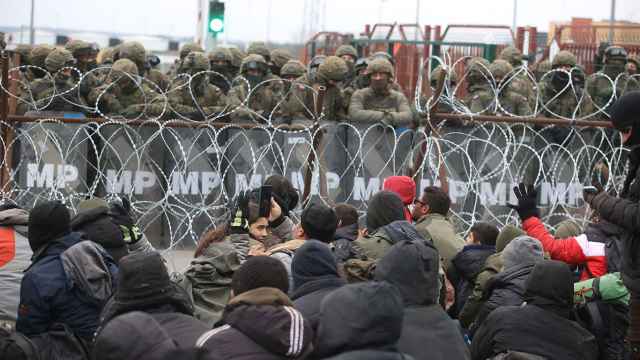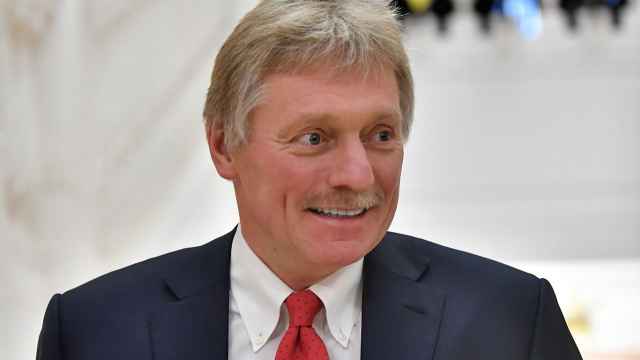Russia's foreign minister on Thursday accused the West of interfering in Belarus as he met strongman leader Alexander Lukashenko who has faced months of protests over his disputed re-election.
Sergei Lavrov held talks with Lukashenko and other top officials in the capital Minsk, in the latest show of Russia's support for authorities in its ex-Soviet neighbor.
Thousands of protesters demanding Lukashenko's resignation have taken to the streets of Minsk every weekend since an Aug. 9 election that saw the 66-year-old claim a sixth term in office.
Protesters believe political novice Svetlana Tikhanovskaya, 38, who took her jailed husband's place in the presidential race, was the true winner.
Moscow has continued to back Lukashenko since the protests erupted, with several meetings between senior officials from both sides in recent months.
Speaking at a press conference with his Belarusian counterpart Vladimir Makei, Lavrov accused the United States and several European countries of "gross interference" in the domestic affairs of Belarus.
"The wise Belarusian people are able to sort themselves out without any outside prompting and intrusive offers of unsolicited mediation," Lavrov said.
Lukashenko has accused Western countries of orchestrating the demonstrations and conspiring to have him removed after 26 years in power.
Lavrov said the West is "using dirty methods of so-called color revolutions, including manipulating public opinion, supporting forces that are openly anti-government and promoting their radicalization."
Several Western leaders have refused to recognize the results of the election and voiced support for Tikhanovskaya, who fled to EU member Lithuania shortly after the vote.
The European Union has slapped sanctions on Lukashenko and a number of his allies citing election rigging and a violent police crackdown on demonstrators.
Belarus police detained thousands of protesters in the first days of the demonstrations, with many reporting torture and abuse in custody.
They have continued to regularly arrest demonstrators and opposition figures, and several people have died during the protests.
Belarusian medics this week have been staging demonstrations in solidarity with a doctor who is facing criminal charges for disclosing information about an activist who died after he was taken into police custody.
Authorities insist that 31-year-old Roman Bondarenko, who died from brain damage earlier this month, was inebriated when police arrested him.
Medics and activists have been posting photos on social media of themselves holding up signs with "zero per mille" written on them — a reference to a measure of blood alcohol content — in support of doctor Artyom Sorokin who revealed that tests showed no trace of alcohol in Bondarenko's system.
Police have also arrested independent journalist Katerina Barysevich for writing an article about Bondarenko in which she disclosed the doctor's findings.
Earlier this week human rights group Viasna called for the "immediate and unconditional" release of Barysevich and two other Belarusian journalists who are in custody and facing criminal charges.
Several more journalists have been arrested during the protests and handed short jail sentences on administrative charges.
A Message from The Moscow Times:
Dear readers,
We are facing unprecedented challenges. Russia's Prosecutor General's Office has designated The Moscow Times as an "undesirable" organization, criminalizing our work and putting our staff at risk of prosecution. This follows our earlier unjust labeling as a "foreign agent."
These actions are direct attempts to silence independent journalism in Russia. The authorities claim our work "discredits the decisions of the Russian leadership." We see things differently: we strive to provide accurate, unbiased reporting on Russia.
We, the journalists of The Moscow Times, refuse to be silenced. But to continue our work, we need your help.
Your support, no matter how small, makes a world of difference. If you can, please support us monthly starting from just $2. It's quick to set up, and every contribution makes a significant impact.
By supporting The Moscow Times, you're defending open, independent journalism in the face of repression. Thank you for standing with us.
Remind me later.






